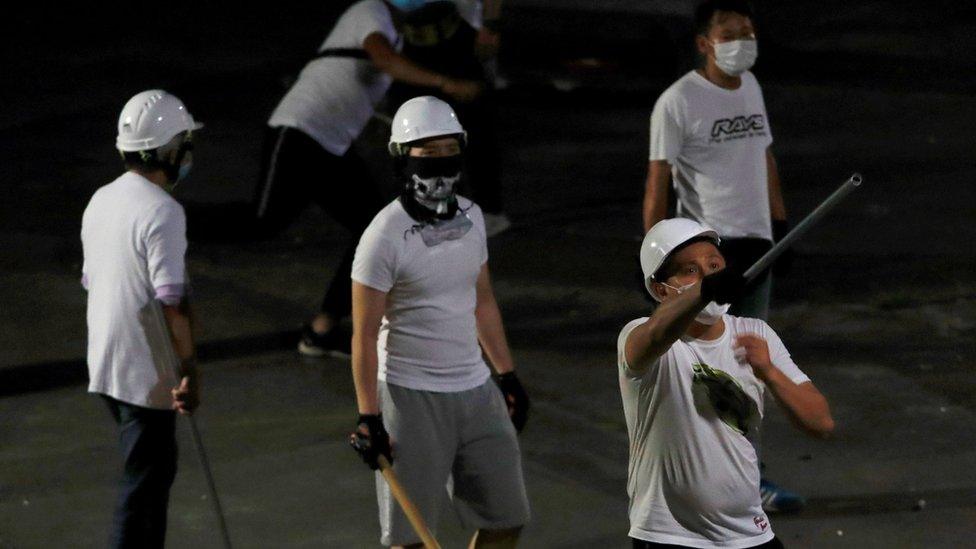Hong Kong protests: Police fire tear gas at activists
- Published
Protests take place in Hong Kong for the ninth weekend - for and against the authorities
Hong Kong police have fired tear gas at protesters who are demonstrating for the ninth weekend in a row.
Groups rallied in the Mong Kok district before starting their march. They called on others to join a city-wide strike planned for Monday.
Beijing and the Chinese army have issued stern warnings about the unrest.
Two months of demonstrations sparked by a controversial extradition bill show no signs of abating, with both sides hardening their stance.
Although the government has now suspended the bill, which would have allowed extraditions to mainland China, demonstrators want the bill fully withdrawn.
Their demands have broadened to include calls for more democracy and for Hong Kong's leader Carrie Lam to resign.
Hong Kong - a former British colony - is part of China but enjoys unique freedoms not seen on the mainland.
What's the latest?
Protesters initially gathered in Mong Kok, a Hong Kong district where violent clashes took place during pro-democracy protests in 2014.
A group of demonstrators briefly blocked access to the Cross Harbour Tunnel, external, causing traffic chaos, while others set up make-shift barricades on shopping streets.
As the demonstrations dragged into the night, protesters gathered outside the police station in Tsim Sha Tsui district. Officers then fired tear gas at the activists.
A police statement said the "radical" group had set fires nearby and had thrown bricks into the building, according to The South China Morning Post.
"Police appeal to everyone at the scene to leave immediately and we express strong condemnation of such violent acts."
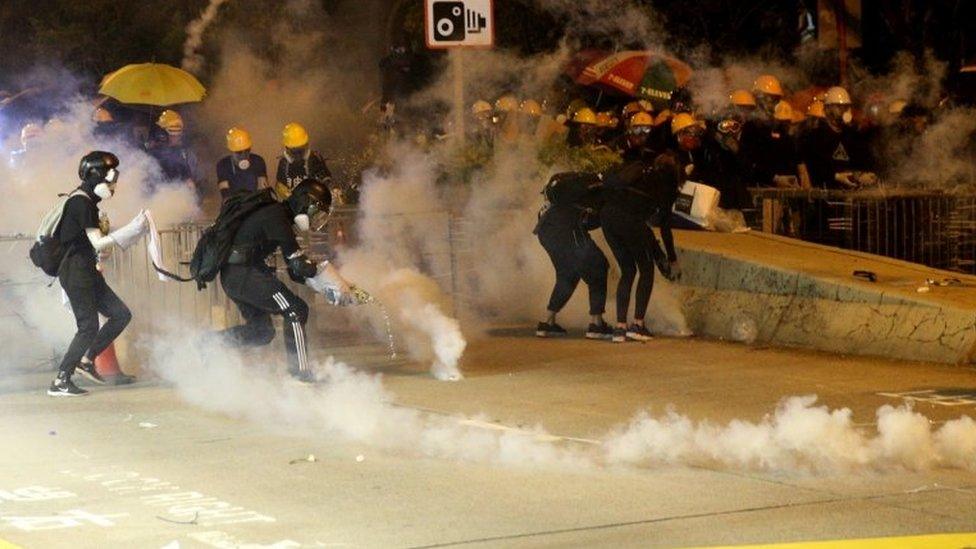
Police said they fired tear gas at a "radical" group of demonstrators
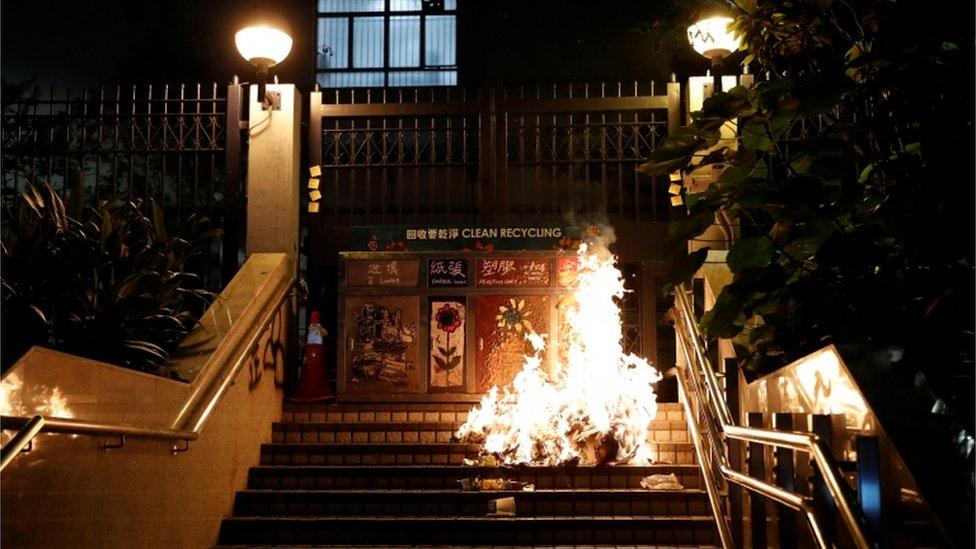
Photos showed piles of rubbish set ablaze outside a police station
Saturday's march comes after a group of civil servants - ordered to be politically neutral - joined demonstrations in their thousands on Friday.
The rally followed the publication of an anonymous letter on Facebook complaining about "extreme oppression" and listing five key demands - the complete withdrawal of the extradition bill; waiving charges against those arrested; an end to descriptions of protests as "rioting"; an independent inquiry into the unrest; and resuming political reforms.
"I think the government should respond to the demands, instead of pushing the police to the frontline as a shield," 26-year-old government worker Kathy Yip told Reuters news agency.
Supporters of Hong Kong's police force also gathered earlier on Saturday for a rally in Victoria Park.
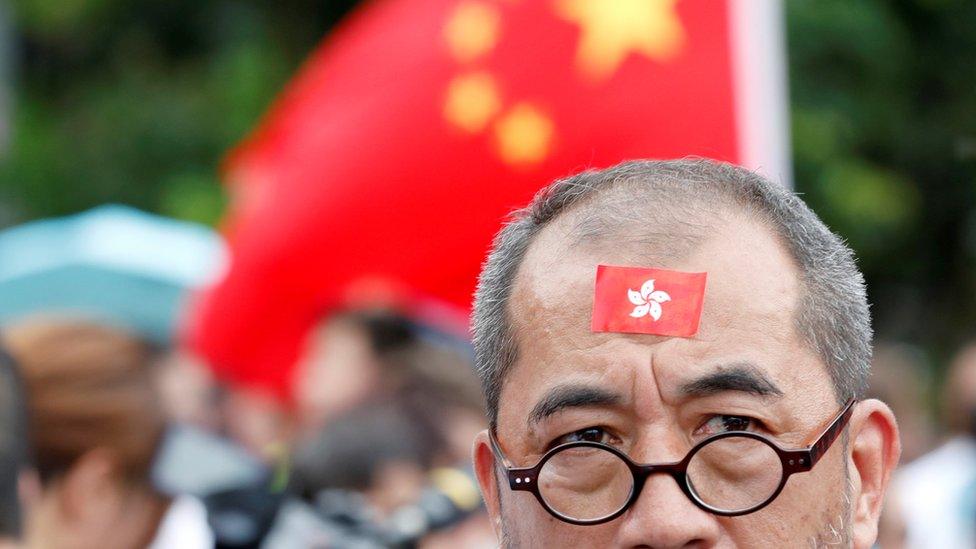
Some gathered in support of the police
"I really feel upset about the violence that we are seeing in Hong Kong everyday," bank worker Evan told Reuters. "The protesters are now not listening to the government, they are not listening to the police."
Some unions and organisations have reportedly already agreed to take part in the strike planned for Monday. There are also further demonstrations planned for Sunday.
How have tensions risen this week?
More than 40 activists appeared in court on Wednesday, charged with rioting after protests last Sunday turned violent.
They could face up to 10 years behind bars if convicted.
Tensions rose further when the military - which has not yet intervened in the unrest - posted a video on social media network Weibo showing soldiers conducting anti-riot drills.
The video shows a soldier using a loudspeaker to warn protesters
Chen Daoxing, commander of the territory's People's Liberation Army (PLA) garrison, said the protests "should not be tolerated", according to reports in the South China Morning Post, a Hong Kong newspaper.
- Published1 August 2019
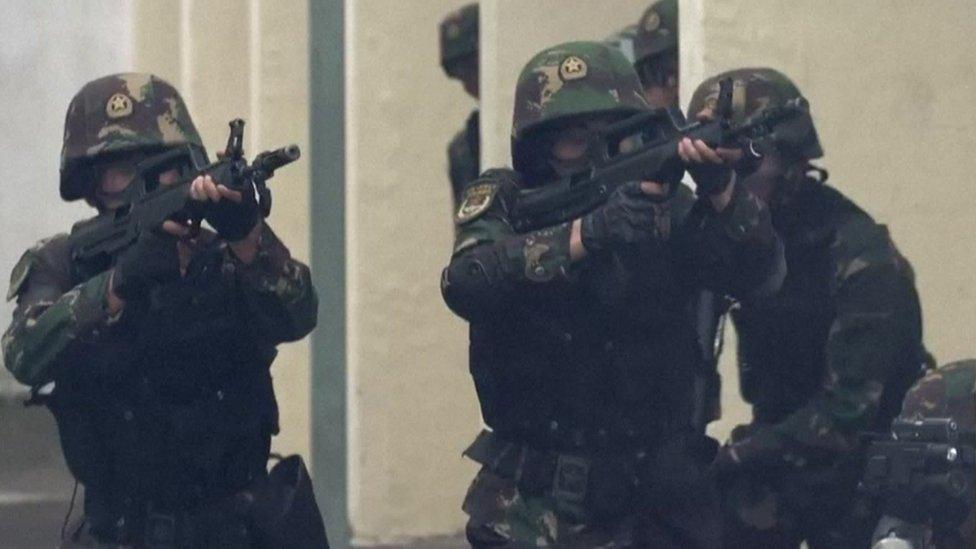
- Published1 August 2019
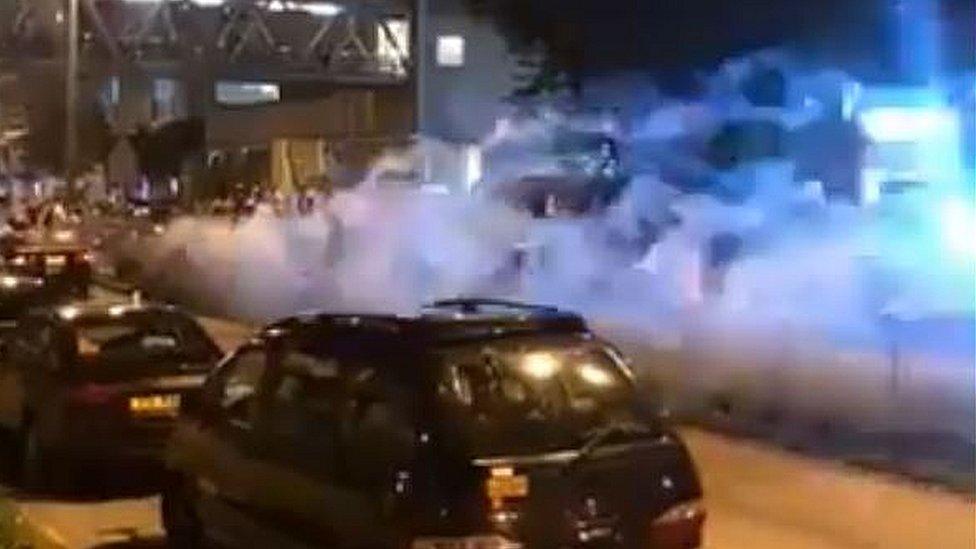
- Published22 July 2019
